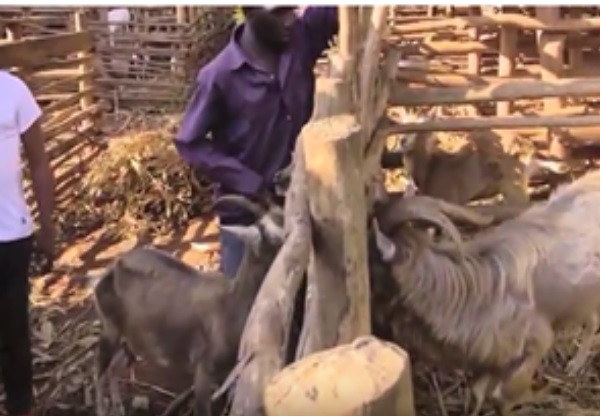Dairy goat farming had been a no-go area to many goat farmers in Uganda because of a number of reasons including low productivity and market for its products like goat’s milk. Ibrahim Mukasa of Kasali village in Kalungu district has since 2003 been rearing the local breeds of goats until he was inspired by one farmer. A few years later, Mukasa joined the dairy goats business. “On a visit to Masaka, I admired milk goats and even came with some milk.” Due to limited space, Mukasa chose to zero graze his goats. “I keep the goats in an enclosure and even get manure from their waste.” He rears about 20 pure and cross-breed dairy goats under this arrangement. When implemented well, there are several benefits from zero grazing and Mukasa whose dairy got business depends on good feed, has no regrets. “I now need to get a vehicle to bring the goats enough feeds." Mukasa said he fed his goats on a variety of feeds including maize brand but he warned farmers of feeding their goats with avocado leaves and cassava. “Avocado and cassava leaves are poisonous and can kill the goats.” By the time we visited his farm, Mukasa was not milking his goats because it was off season. Goats’ milk is more expensive than cows’ milk with a liter going for about 3,400 compared to cows’ milk at 1,600 but Mukasa was optimistic about the future. He, however, continued to tell us that a number of people had a bias on goats’ milk.
Klanzi Muhammad a Community Goat Officer shared a few guidelines for successful dairy goat farming. “Farmers, I will say they are not really very keen on deworming their goats but it's really a very important issue for farmers to do it every after three months.” Klanzi explained that there were four dairy goats’ varieties currently in the country; the Toggenburg, Sanan, Alpine and Agrinubian varieties. “The Sanan is white in color but the Toggenburg is brown in color with white seize markings on the face, on the ears, and on the legs,” Klanzi warned against poor feeding and management. He also strongly warned farmers to deworm their goats. “Because if you specify to keep the dairy goats, you expect to get milk. But if the feeding is poor, you are not expecting milk from the goat.”

